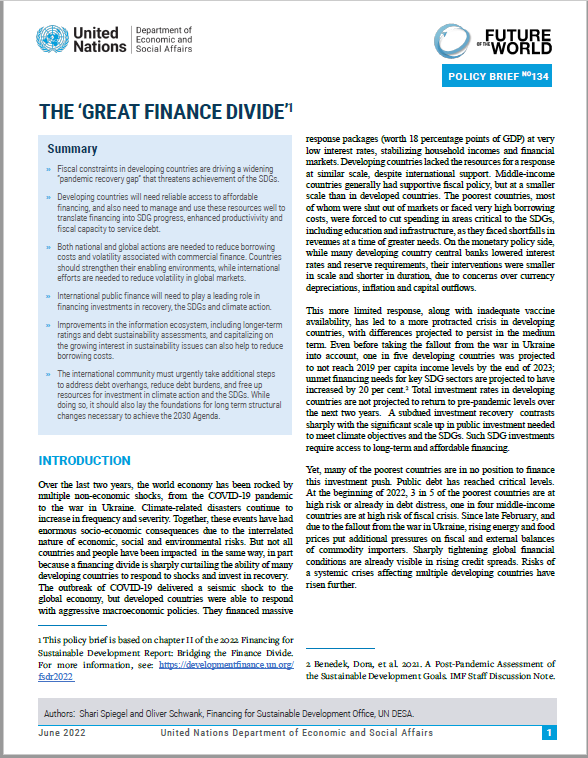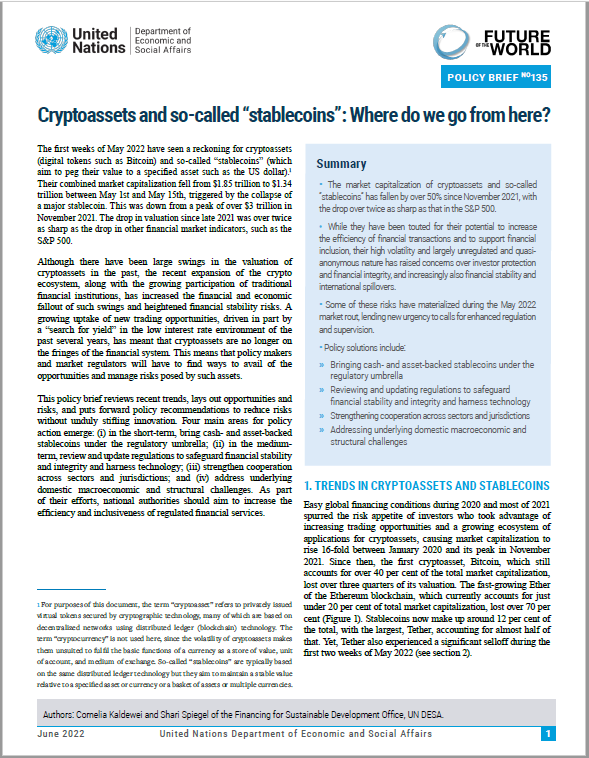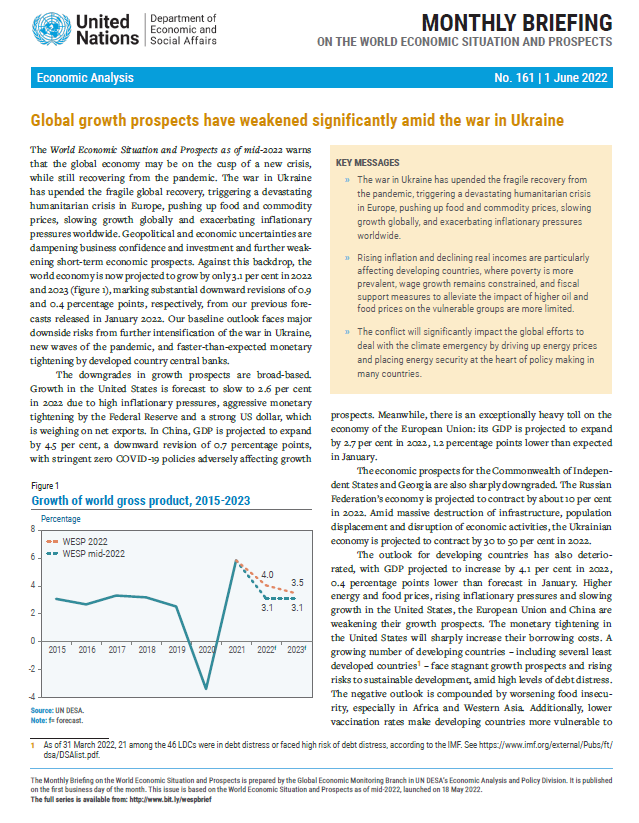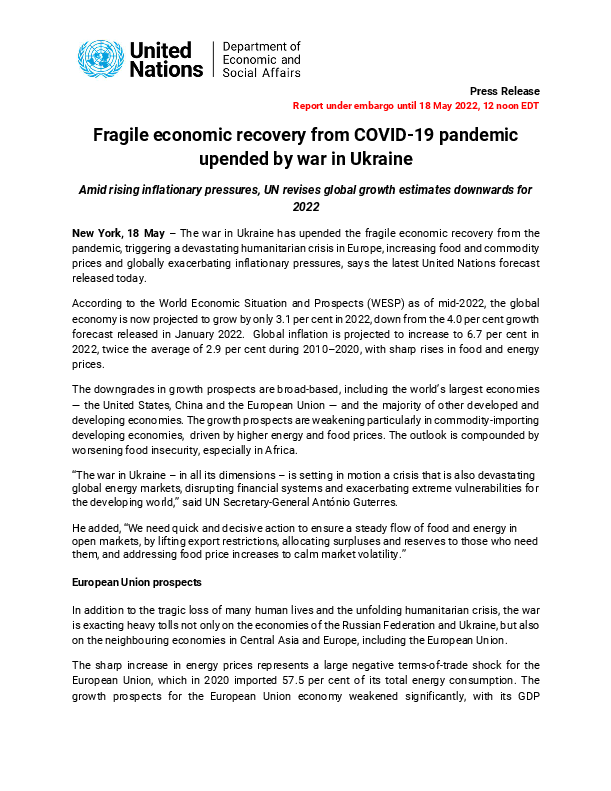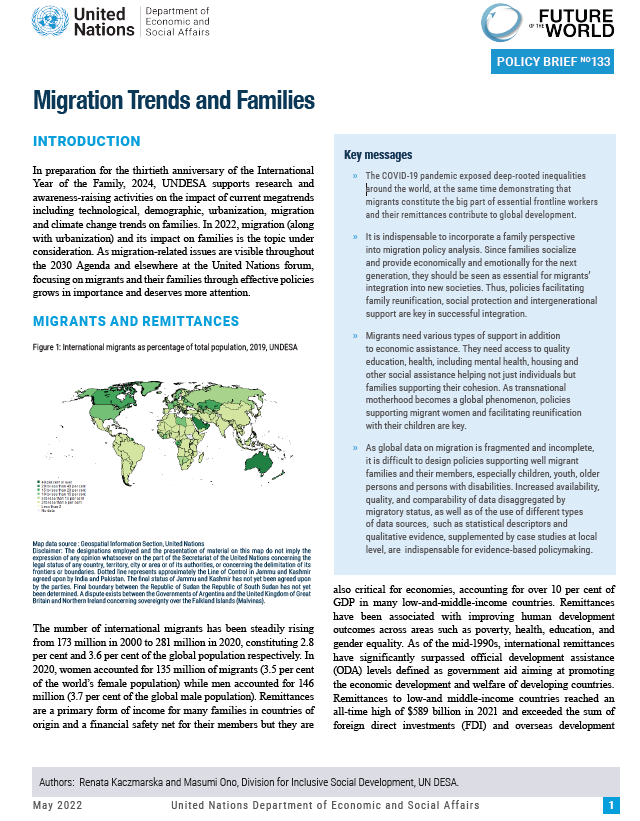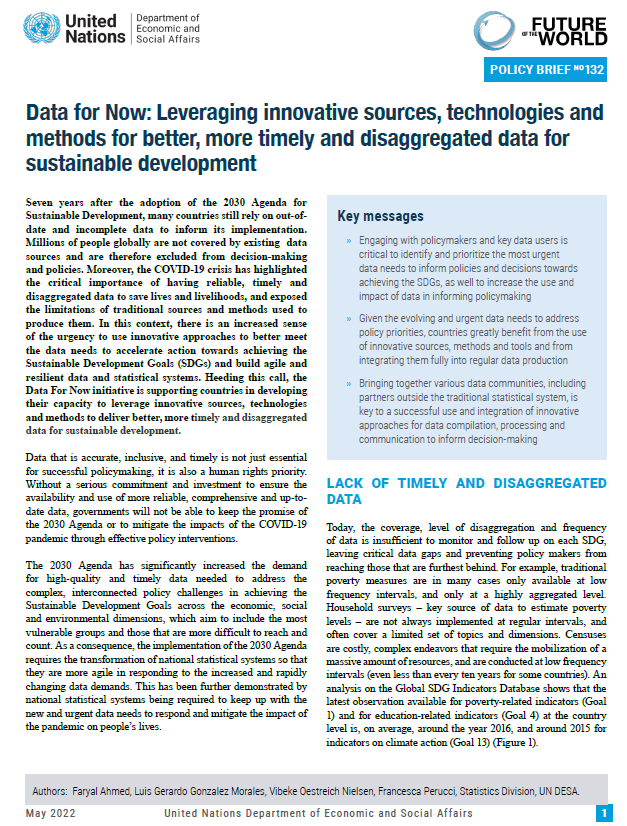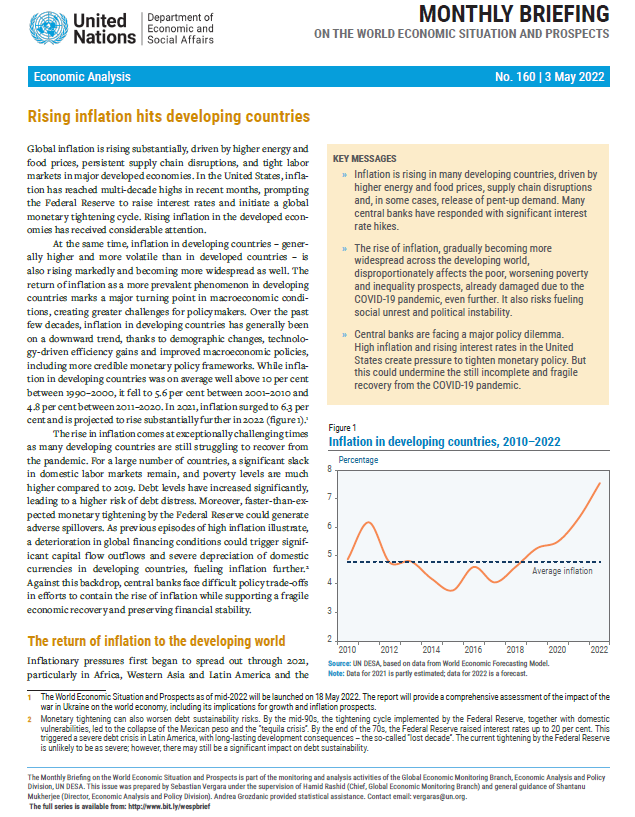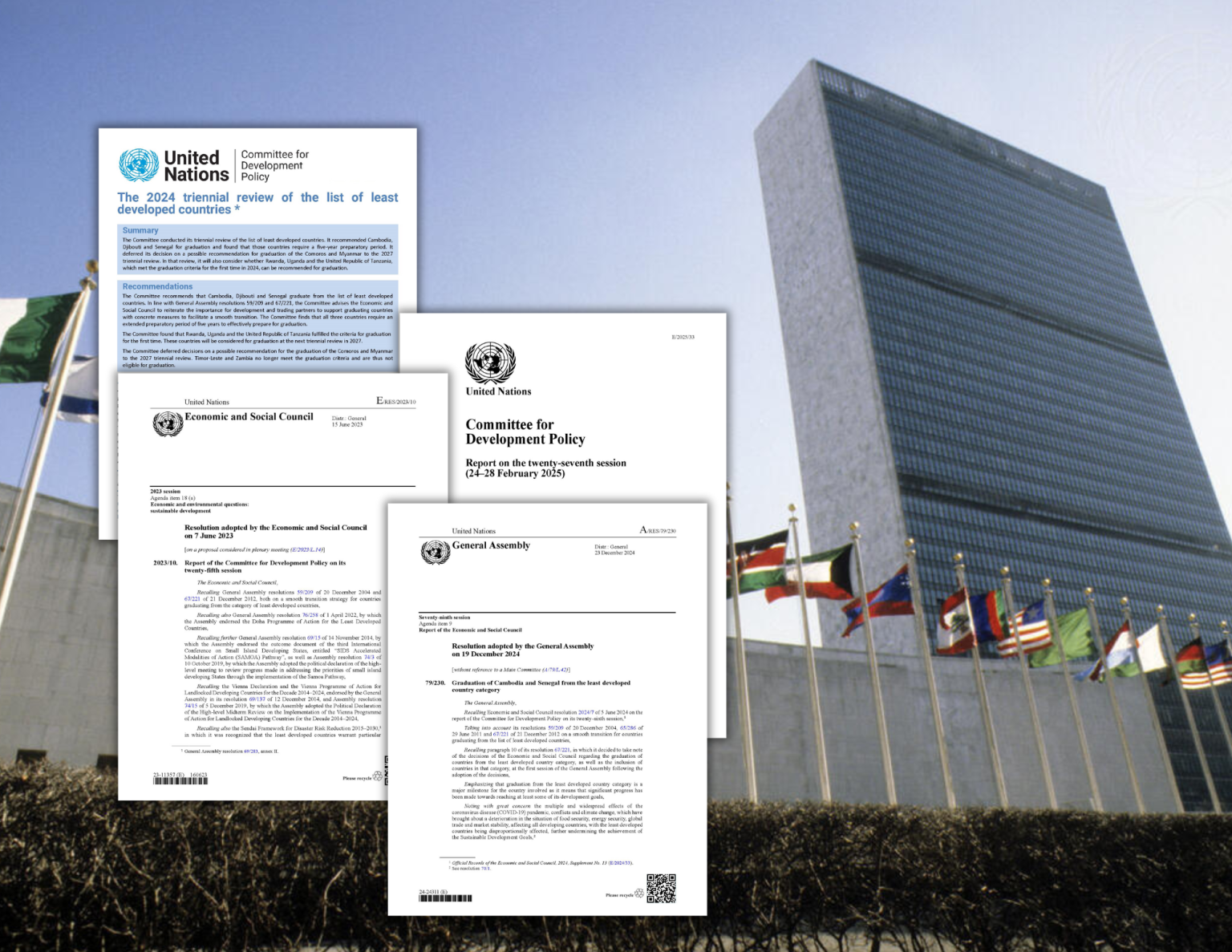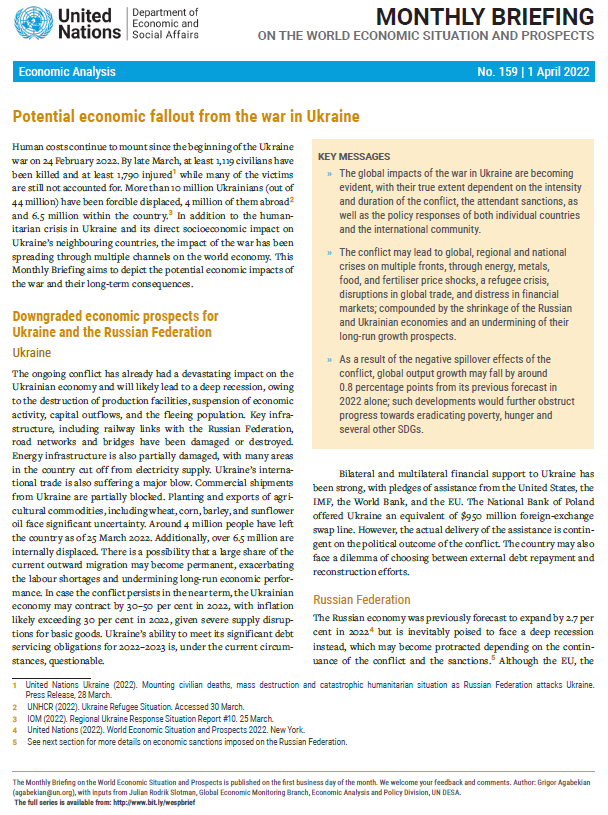Publications
Displaying 121 - 130 of 1081
Global growth prospects have weakened significantly amid the war in Ukraine The World Economic Situation and Prospects as of mid-2022 warns that the global economy may be on the cusp of a new crisis, while still recovering from the pandemic. The war in Ukraine has upended the fragile global recovery, triggering a devastating humanitarian crisis in Europe, pushing up food and commodity prices, slowing growth globally and exacerbating inflationary pressures worldwide. Geopolitical and economic uncertainties are dampening business confidence and investment and further weakening short-term economic prospects. Against this backdrop, the world economy is now projected to… World Economic Situation and Prospects: June 2022 Briefing, No. 161
INTRODUCTION In preparation for the thirtieth anniversary of the International Year of the Family, 2024, UNDESA supports research and awareness-raising activities on the impact of current megatrends including technological, demographic, urbanization, migration and climate change trends on families. In 2022, migration (along with urbanization) and its impact on families is the topic under consideration. As migration-related issues are visible throughout the 2030 Agenda and elsewhere at the United Nations forum, focusing on migrants and their families through effective policies grows in importance and deserves more attention. MIGRANTS AND REMITTANCES
The number… UN DESA Policy Brief No. 133: Migration Trends and Families
Seven years after the adoption of the 2030 Agenda for Sustainable Development, many countries still rely on out-of-date and incomplete data to inform its implementation. Millions of people globally are not covered by existing data sources and are therefore excluded from decision-making and policies. Moreover, the COVID-19 crisis has highlighted the critical importance of having reliable, timely and disaggregated data to save lives and livelihoods, and exposed the limitations of traditional sources and methods used to produce them. In this context, there is an increased sense of the urgency to use innovative approaches to better meet the data needs to accelerate action… UN DESA Policy Brief No. 132: Data for now: leveraging innovative sources, technologies and methods for better, more timely and disaggregated data for sustainable development
عربي, 中文, English, Français, Русский, Español Corrigendum (E/2022/33/Corr.1) to the Report of the Committee for Development Policy
To reflect the correct graduation date for Bhutan
عربي, 中文, English, Français, Русский, Español CDP excerpts on the report by theme Building back better from the coronavirus disease (COVID-19) while advancing the full implementation of the 2030 Agenda for Sustainable Development Review by the Economic and Social Council of subsidiary bodies Voluntary national reviews (VNRs) Monitoring of countries that are graduating or have graduated from the list of least…
Download the PDF Potential economic fallout from the war in Ukraine Human costs continue to mount since the beginning of the Ukraine war on 24 February 2022. By late March, at least 1,119 civilians have been killed and at least 1,790 injured while many of the victims are still not accounted for. More than 10 million Ukrainians (out of 44 million) have been forcible displaced, 4 million of them abroad and 6.5 million within the country. In addition to the humanitarian crisis in Ukraine and its direct socioeconomic impact on Ukraine?s neighbouring countries, the impact of the war has been spreading through multiple channels on the world economy. This Monthly Briefing aims to depict the… World Economic Situation and Prospects: April 2022 Briefing, No. 159
 Welcome to the United Nations
Welcome to the United Nations
